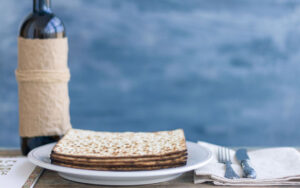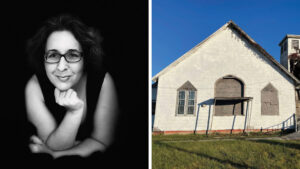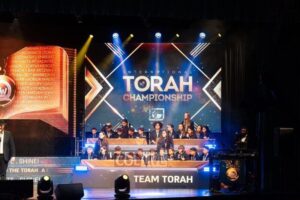By Rabbi Daniel Cotzin Burg
The Women’s March on Washington was an extraordinary affair, and I was honored to be part of it. I was not planning to attend. As someone who is shomer Shabbos, I didn’t see how to make it work. And as much as I felt called to the moment (and knew many of my congregants would be there), my first responsibility is to my shul. Our monthly Kesher L’Neshama (soulful Shabbat) service was planned for that day, and I was already to be in Israel the following week due to a long-scheduled trip to continue my studies as a Shalom Hartman Institute’s Rabbinic Leadership Initiative fellow.
As the day of the march drew near, my resolve to speak out against the incoming administration’s demeanor and approach was reinforced by the then-president-elect’s choices of Cabinet members and advisers. While the march highlighted a number of significant societal challenges, I was and am increasingly worried that (very legitimate) concerns about refugees/immigrants, racism, Islamophobia and more are overshadowing pervasive misogyny laid bare in this past election. What’s more, living where I do, I am cognizant of the recent Department of Justice report that identifies “serious concerns of gender-biased policing” — a reminder that from pay inequity to police brutality, women of color are disproportionately affected by gender bias.
As a man, and particularly a white man, I felt called to bring my 9-year-old son to march with my wife and 11-year-old daughter. So I decided to join Miriam and our children in Washington. It would not be easy. We had a room lined up within walking distance of Independence Boulevard, one of many in D.C. homes made available free to strangers by their owners in support of the effort. Then Friday, we got a call from our would-be-host; in tears, he explained he had a family emergency and could no longer have us. Plan B was to crash at a cousin’s place near the zoo, but that was a full three miles from the Mall. So our first stop as we entered the District before Shabbat was to buy prepaid Metro passes — an imperfect but manageable solution.
Friday night and Saturday morning, we joined hundreds at the Sixth & I Synagogue for uplifting services and poignant words of Torah. And we marched. We navigated the sea of 500,000 bodies, positioning the children where they could see and hear some of the speeches. We crossed the Mall and marched past the new African-American museum to the Ellipse. By the end of the day, our legs were weary but our hearts were full.
We resolved to fight. Which is why when the Trump administration saw fit to ban refugees and immigrants from seven primarily Muslim countries, and protesters converged on BWI, I was not there. You see, that evening was a long-scheduled meeting with newly appointed State Sen. Barbara Robinson at the home of a congregant and neighbor.
Marches galvanize support for causes. They foster a sense of shared responsibility. Perhaps most importantly, they are the embodiment of one of our most precious rights: the “right of the people peaceably to assemble.” The next line of the First Amendment, however, is even more important: “[The right] to petition the government for a redress of grievances.” Representative democracies are only as strong as the extent to which we the people hold our elected officials accountable — and local politics are where most of the impactful work can be done.
The meeting that evening was convened by Jews United for Justice to address a number of local concerns including police accountability, paid sick leave and rent court reform. The senator heard us out as we sat in my neighbor’s living room and shared stories of brokenness. Our bodies were stationary. Our stories and concerns were true, and our truth goes marching on.
Photo of Women’s March on Washington by Xandra Ellin
Daniel Cotzin Burg is rabbi of Beth Am Synagogue in Reservoir Hill, where he lives with his wife, Rabbi Miriam Cotzin Burg, and their children, Eliyah and Shamir. This column and others also can be found on TheUrbanRabbi.org. Each month in Jmore, Rabbi Burg explores a difference facet of The New Jewish Neighborhood, a place where Jewish community is reclaimed and Jewish values reimagined in Baltimore.






